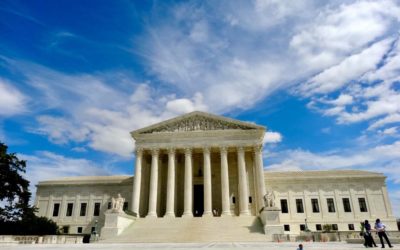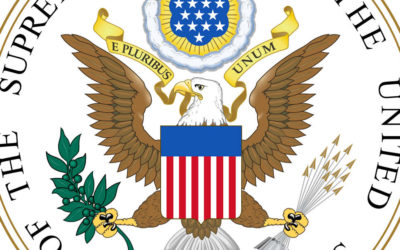Forfeiture Law in Focus: SCOTUS and Sixth Circuit Issue Landmark Rulings
The landscape of forfeiture law has been significantly shaped by recent decisions from the U.S. Supreme Court and the Sixth Circuit Court of Appeals. These rulings, in the cases of United States v Darden-Mosby and Culley v Marshall, provide crucial insights and establish new precedents that will impact future forfeiture proceedings.
Attorney Fees and Right to Counsel
Another significant trend in forfeiture jurisprudence is the recognition that the right to counsel can supersede forfeiture statutes. Courts have increasingly ruled that individuals facing forfeiture actions are entitled to use their seized assets to pay for legal representation. This trend reinforces the importance of ensuring that defendants have access to legal counsel to defend their rights effectively.
Michigan Forfeiture Laws: Recent Changes and Requirements
Michigan has implemented several changes to its forfeiture laws to enhance due process and protect property owners’ rights. Key statutes governing forfeiture in Michigan include:
- Requirement for Conviction: Michigan law now mandates a criminal conviction for forfeiture actions involving personal property valued under $50,000 (excluding cash) unless the owner consents to the forfeiture.
- Filing Deadlines: Law enforcement agencies must file a forfeiture action within 28 days of seizing property valued over $50,000. If the property is valued under this amount, a conviction is required before proceeding with forfeiture.
- Claims of Interest: Property owners must file a claim of interest within 20 days of receiving notice of the forfeiture action. For property valued over $50,000, no claim of interest is required before the police are obliged to either return the property or forward the case to the prosecutor’s office.
United States v Darden-Mosby
Background: The DEA conducted a search of the defendant’s home and vehicle, uncovering an unregistered firearm, drug paraphernalia, and 13.6 grams of cocaine. Significant amounts of cash were seized from various locations, including $112,690 from the defendant’s bedroom. Additional sums were seized during a subsequent traffic stop. The court’s decision hinged on the distinction between legitimate and illegitimate sources of the seized funds.
Court’s Holdings and Reasoning
- Cash in the Safe and Shoebox: $92,470 – The Sixth Circuit upheld the forfeiture, emphasizing the presence of bulk cash in proximity to drug paraphernalia and an unregistered firearm. The defendant’s history of dealing in cash for drug transactions, contrasted with banking his legitimate business earnings, further solidified the court’s decision. The court applied established principles, asserting that bulk currency, drug convictions, unexplained legitimate income, and proximity to drugs collectively justified forfeiture.
- Cash in and on the Dresser: $20,220 –Here, the defendant successfully demonstrated a legitimate source for the funds. Evidence of withdrawals for home repairs and the absence of drug residue led the court to rule against forfeiture. This part of the decision underscores the importance of substantiating the legitimate origins of contested assets.
- Cash from the Traffic Stop: $2,500 –Despite administrative forfeiture proceedings, the court determined that criminal forfeiture was not applicable due to procedural dismissals by the government. This nuanced aspect highlights the complexities in distinguishing between criminal and administrative forfeiture pathways.
Culley v Marshall: Balancing Timeliness and Due Process
Background: In Alabama, vehicles were seized under civil forfeiture laws after their owners lent them to individuals who were subsequently arrested for drug offenses. The central issue was whether the lack of preliminary hearings violated due process rights.
Supreme Court’s Holdings and Reasoning
The U.S. Supreme Court ruled that due process does not necessitate separate preliminary hearings before the main forfeiture proceedings. The court emphasized that timely hearings sufficed, drawing parallels to the speedy trial rights of defendants. The decision referenced historical practices and legislative intent from the period when the Fourteenth Amendment was ratified, reinforcing that preliminary hearings were not a due process requirement for personal property seizures.
Timbs v Indiana: A Landmark Decision on Excessive Fines
Background: In Timbs v Indiana, the Supreme Court held that the Eighth Amendment’s prohibition against excessive fines is applicable to the states through the Fourteenth Amendment. This case involved the seizure of a Land Rover worth $42,000, which Timbs had purchased with money from his father’s life insurance policy. The state seized the vehicle after Timbs was convicted of drug offenses, even though the maximum fine for his crime was $10,000.
Court’s Holdings and Reasoning
The Court ruled that the seizure of Timbs’ vehicle was grossly disproportionate to the gravity of his offense and thus violated the Eighth Amendment’s Excessive Fines Clause. This decision is pivotal as it underscores the constitutional limits on state and local governments’ power to impose fines and forfeitures.
Legal Counsel and Your Rights
When facing legal challenges, particularly in criminal cases, it is advisable to seek legal counsel immediately.
An experienced attorney can provide guidance on how to navigate interactions with law enforcement while safeguarding your constitutional rights.
Since 1993 our expert legal defense in navigating criminal law matters and protecting your constitutional rights are what we eat for breakfast everyday.
Contact Komorn Law PLLC if you’re ready to fight and win.
Research us and then call us.
Recent

Criminal Law FAQs – Drinking Alcohol or Smoking Marijuana and Driving
Michigan Criminal Laws FAQs Operating a Motor Vehicle Under The InfluenceWalking is cool... For fun and excercise. Not because you lost your license. Don't do the crime if you can't pay the price. But if you do get charged with a crime. Better Call Komorn to fight for...

Criminal Law FAQs – Probation Violations
Michigan Criminal Laws FAQs Theft CrimesAccording to Michigan State Law (Michigan Compiled Laws - MCL), a Probation Violation occurs when a person who has been sentenced to probation fails to comply with the terms and conditions of their probation order. These terms...
Other Articles
Maker of CBD products asks court to decide
The Petitions of the Week column highlights a selection of cert petitions recently filed in the Supreme Court. A list of all petitions we’re watching is available here. Organized crime, from the mafia to small-time money laundering schemes, often evades criminal...
Supreme Court Ruling Strengthens First Amendment Protections: Implications for Michigan’s Threat Speech Laws
In a significant legal development, the United States Supreme Court has recently issued a ruling that has far-reaching implications for individuals facing charges related to "threat speech" in Michigan. The case of Counterman v. Colorado, decided on June 27, 2023,...
Listen Live to the US Supreme Court
Listen live to arguments in the Supreme Court. On Monday, the Supreme Court is set to hear arguments over the phone for the first time ever due to the coronavirus pandemic; they'll hear 10 cases remotely from now until May 13. But that's not the only history being...
US Supreme Court Press Releases Regarding the Justices and counsel will all participate remotely.
The US Supreme Court will hear oral arguments by telephone conference on May 4, 5, 6, 11, 12 and 13 in a limited number of previously postponed cases. The following cases will be assigned argument dates after the Clerk’s Office has confirmed the availability of...
















